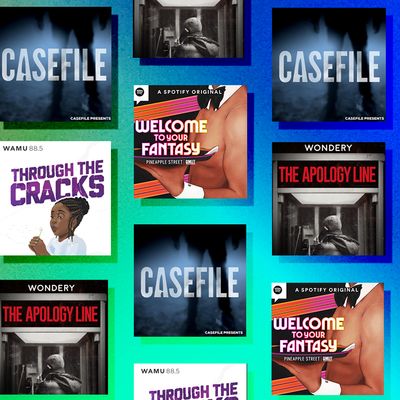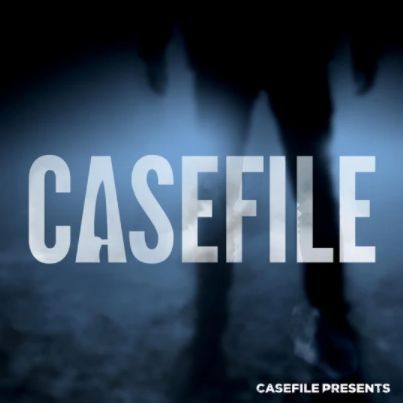
The true-crime podcast universe is ever expanding. We’re here to make it a bit smaller and a bit more manageable. There are a lot of great shows, and each has a lot of great episodes, so we want to highlight the noteworthy and the exceptional. Each week, our crack team of podcast enthusiasts and specialists will pick their favorites.
Welcome to Your Fantasy, “A Disneyland for Adults”
This new podcast about the birth of Chippendales might as well have been engineered in a lab to appeal directly to me, a child of the ’80s who, as a teen, attended the all-male strip show with my mom and her friends during a trip to Vegas, and has since developed a questionable true-crime habit. As it turns out, the history of Chippendales is about much more than dudes in banana hammocks chatting with Phil Donahue; in addition to the more garden-variety excesses you’d expect in terms of sex, drugs, and wads of cash, there was more than a little murder.
Historian Natalia Petrzela delves into the history of this legendary brand with scads of juicy interviews with the major players from back in the day, who are all as colorful as you’d hope. I’m already obsessed with Candace Mayeron, a former lawyer and investment banker turned backgammon expert who was a sort of den mother for the dancers on the road. I was able to preview the first three episodes, and although we’re still working up to the true-crime bits, it’s hugely entertaining and thought-provoking. I’m especially interested in how some of the guys involved see themselves as feminist firebrands — “like they were arm in arm with Gloria Steinem and Bella Abzug,” Petrzela quips. —Jenni Miller
The Apology Line, “To Catch a Serial Killer”
For 15 years, a mysterious artist known as Mr. Apology invited New Yorkers to call into his Apology Line, a safe space to anonymously say sorry for whatever weighed on them. It was supposed to be an art project that gave insight into the human condition. Before long though, the confessions turned dark and disturbing. Host Marissa Bridge watched the fascinating phenomenon up close as the wife of Mr. Apology. Now, she looks back on the line, the man who made it, and the self-proclaimed serial killer who became his obsession. The story is outrageous. Its turns are maddening. Yet this podcast season turns downright addictive, as an eccentric artist becomes the confidant of an undetected murderer. Mr. Apology might be the only one who can stop the slayings. But are these confessions real or just a deranged mind game? —Kristy Puchko
Through the Cracks, “Kicked Out”
In 2014, 8-year-old Relisha Rudd disappeared from the Washington, D.C., homeless shelter where she lived with her family. Seven years later, she’s still missing, and in the words of D.C. government officials investigating the case, they “did not find evidence that these tragic events could have been prevented.”
Through the Cracks, a project of NPR station WAMU in Washington, D.C., and PRX, investigates the fissures in society, who falls through them, why, and how. This season, host Jonquilyn Hill takes a look at Relisha’s case — not only her disappearance but also the circumstances leading up to it, and if it was, in fact, preventable. The latest episode examines the eviction of Relisha and her family from their apartment (which led them to the shelter); how the city, in spite of its assertion that it aimed to protect vulnerable tenants, failed them; and how the collision of poverty, racism, and lack of social safety nets contributed to Relisha’s disappearance. —Chanel Dubofsky
Casefile, “Cindy James”
This Australian podcast routinely ranks among my favorites thanks, in large part, to its deep-dive narrative approach. Sure, these long-winded accounts can sometimes come off as pedantic, but more often than not, the devil is truly in the details. (See: Casefile’s impressive six-part series on the Golden State Killer that came out in 2017 — long before anyone knew Joseph DeAngelo’s name.) The story of Cindy James is another that benefits from a robust, ticktock-style retelling of events. In 1982, the British Columbia woman began receiving mysterious phone calls, which quickly escalated into acts of violence. She was being stalked and didn’t know by whom. The calls and attacks would continue for more than six years, and to this day, no one is entirely sure what happened to Cindy James — except for this: She was let down by the system in more ways than one. —Amy Wilkinson





